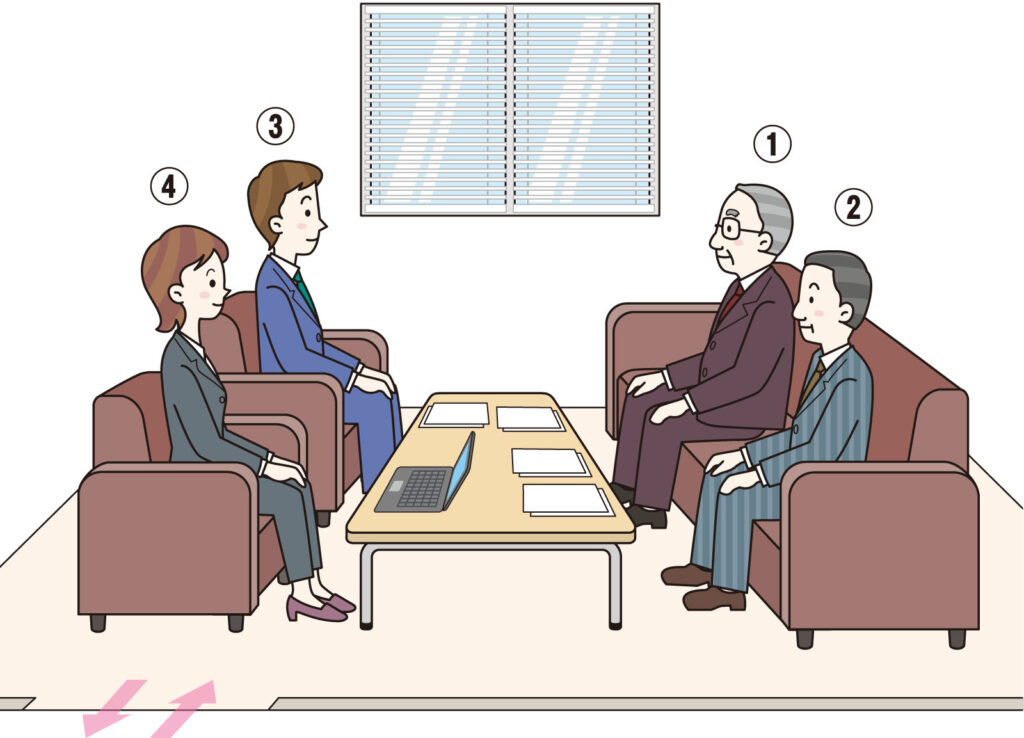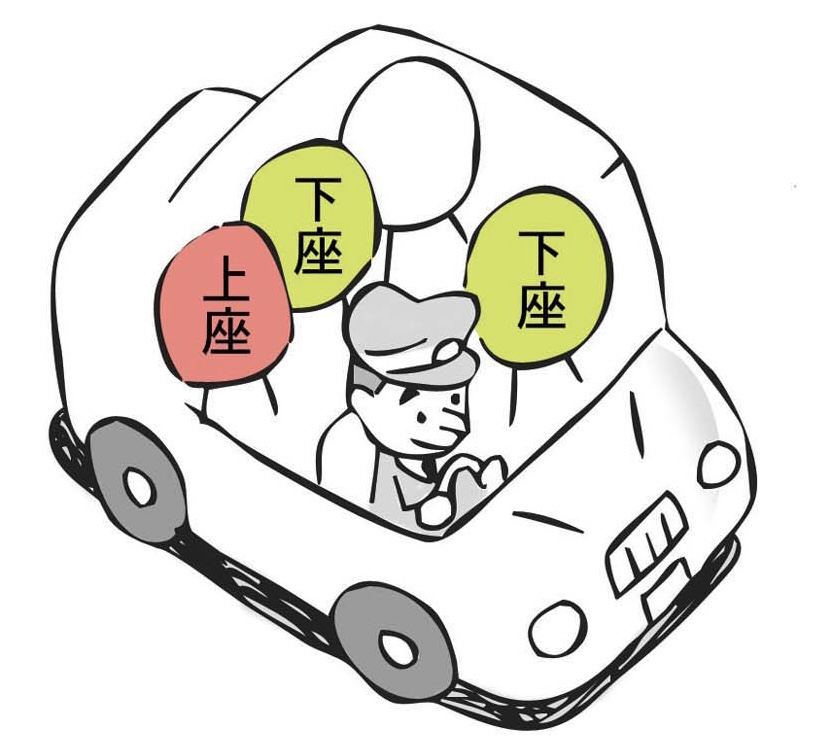If you have a chance to interact with Japanese people, you might be wondering how come they are so polite and follow the disciplinary rule.
Also, if you wish to have a relationship with Japanese friends or business partners, you may possibly want to know how Japanese society works in the hierarchical culture.
We, Japanese people, have a hierarchical society and your unconscious behaviour could be thought to be impolite in Japan.
In this article, I’d like to share the following matters regarding Japanese hierarchy.
-Hierarchy in Japan
-Hierarchy in business
-How should you deal with a hierarchical society
After reading it, I hope you will understand how Japanese hierarchical society works and know how to get along with Japanese friends, seniors, supervisors, etc.

Let me introduce about myself.
I am Hiro from Tokyo, Japan, born and raised here.
I have working experience in Japanese companies (logistics and manufacturing) as an international sales for almost 10 years, so I well understand Japanese people’s hierarchical culture.
If you’d like to see video version, please refer to below link.
Hierarchy in Japan

Japanese society is based on a strict hierarchy and we usually show respect to seniors, supervisors, elders and experienced people.
We must use Keigo (an honorific language) for even one year older person and friendship is basically impossible between the different generations of people because Keigo disturbs casualty and makes a hierarchical relationship.
The hierarchical relationship is reflected in a lot of parts of Japanese society.
Seat of honour
When having lunch, dinner, meeting, or getting in a car, there is a seat of honour and you need to have extra care not to sit on the seat of honours if you are together with a Japanese elder or your senior or supervisor.
Meeting, lunch or dinner

During meetings, lunch or dinners, the backseat farthest from the door or entrance is usually the seat of honour. (See the above image. ① & ② are the seat of honour.)
In contrast, the seat near the door or entrance is a lower seat for a subordinate.
If you are subordinate and have seat with your senior, supervisor or customer, you possibly need to let him/her sit on the seat of honour.
We Japanese people always consider which seat is the seat of honour and they try to avoid sitting there,
so when it is difficult to know where is the seat of honour, common thing is that no one even tries to have any seat for 1-2 minutes hesitating.
Car

There is a seat of honour even inside a car as well.
The red colour person part in the above image is the seat of honour.
In contrast, the green colour person parts are the lower seats.
I know it is difficult to remember such kind of rule.
If you think so, hope you keep in mind firstly letting your supervisor/customer into the rear seat of a car when you all get on.
Hierarchy in school

Hierarchy in Japan starts from junior high school in Japan and Japanese students all need to use Keigo (honorific language) with their teachers and seniors (one or more years older students).
I remember I was scolded by my PE teacher because I didn’t use Keigo when speaking with him when I was in Junior high school.
We need to call seniors(Senpai 先輩). If your senior’s last name is Suzuki, you should call him/her Suzuki senpai (Suzuki senior).
Also, seniors feel uncomfortable if Keigo is not used by juniors (one or more years younger students) or juniors are not obedient to seniors and even there is a possibility seniors bully juniors due to that.
That hierarchical language usage suddenly started when we all entered junior high school, so good friends of mine who were one year older/younger couldn’t be good friends anymore
and we couldn’t use casual ways of communicating with older people and younger people than me couldn’t also use casual ways of speaking to I, so the relationship with they became kind of awkward after junior high school entry.
Hierarchy in business

Japanese business style is also based on the hierarchical relationship.
When calling supervisors
You need to call supervisors by their titles such as manager (Kacho 課長) and president (Shacho 社長) and if their last names are Suzuki, you need to call them Suzuki Kacho or Suzuki Shacho inside the company.
Obedience to supervisors
You are required to be obedient to your supervisors in a strange way.
Some companies in Japan require subordinates to stay working after regular working hours is finished
and they possibly need to ask their boss whether they could help the boss to finish the job early and support him/her working overtime.
When I was in a logistics company in Japan, there was such a culture of not leaving office after regular working hour and all the workers ended up working until 8-9pm.
(It depends on each company’s culture and also there are a lot of companies which allow subordinates to go home soon after regular working hours regardless of the supervisor’s business at that time.)
Also, a subordinate cannot decide many things and always need to communicate with their supervisor in advance and receive approval.
For example, I am a salesperson in a manufacturing company and when I submit a quotation to my customer and if the order value of a quotation exceeds JPY10 million (USD75,000), I must consult my supervisor to receive approval and the approval system often prevents smooth correspondence with my customer.
The voice of subordinates cannot be reflected easily
Due to hierarchical relationships in Japanese companies, the voices of subordinates cannot be reached to supervisors often, so the timing of complaining current environment is usually when subordinates submit resignations to their supervisors.
Companies are trying to better environments for workers
Therefore, there are a lot of companies promoting a good communication environment recently.
For instance, as I mentioned, we need to call supervisors’ job titles when addressing them such as Kacho (manager) or Shacho (president), but some companies mandate all the workers to call “-san” at last (such as Suzuki-san or Ito-san) regardless of job title. “-san” means Mr./Ms. in Japan.
If we call “-san” instead of job title, it can rather be a flat relationship and less authority is inside “-san”, and regardless of job positions in the company, arguments can be more activated and the voice from subordinates can be easily sent to management teams.
A giant agricultural machinery company Kubota started calling “-san” movement since 2020.
This the voice from subordinates cannot be reached by supervisors often in Japanese society and a lot of Japanese companies are trying to improve that situation.
How should you deal with Japanese hierarchical society

If you come to Japan to work, you might wonder how you should deal with this hierarchical culture in Japan.
Firstly, if you are a foreigner to Japanese people, you don’t need to take it too seriously, because Japanese people also think you don’t well understand their hierarchical culture.
(There are a lot of Japanese people who are casual to foreigners only)
However, you also need to keep in mind that the elder, senior, supervisors or experienced people are well respected in Japanese society and you shouldn’t obviously refuse or deny what they say or do in front of other people, or else they lose their face and you cannot end up having a good relationship with them.
Also, you may gradually learn to know distinctive Japanese rules such as the above seat of honour by observing your Japanese friends, colleagues, etc.
Conclusion
In this article I introduced Japanese hierarchical society.
The culture could possibly be quite difficult to understand.
If it is so, again you don’t need to be worried about it too much and of you have chance to live in Japan, gradually you can learn how Japanese society works.
Thank you for reading this article till the end!




コメント Comment